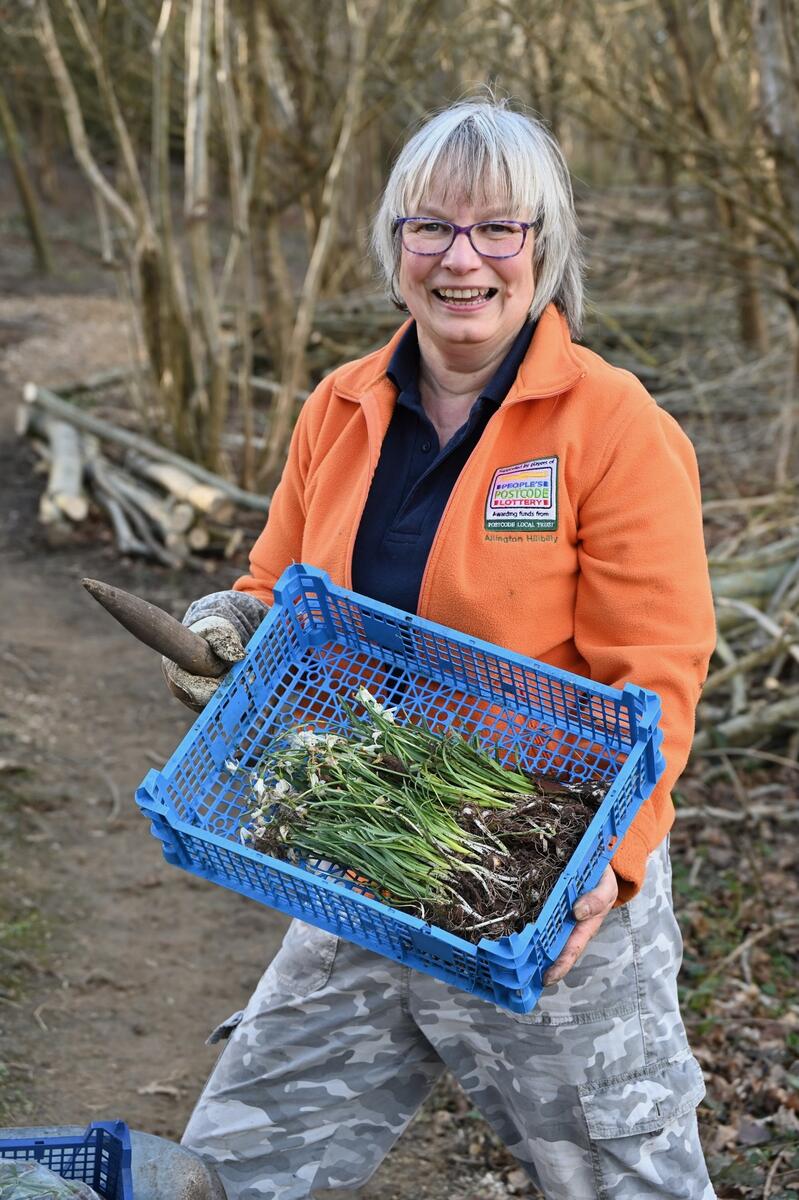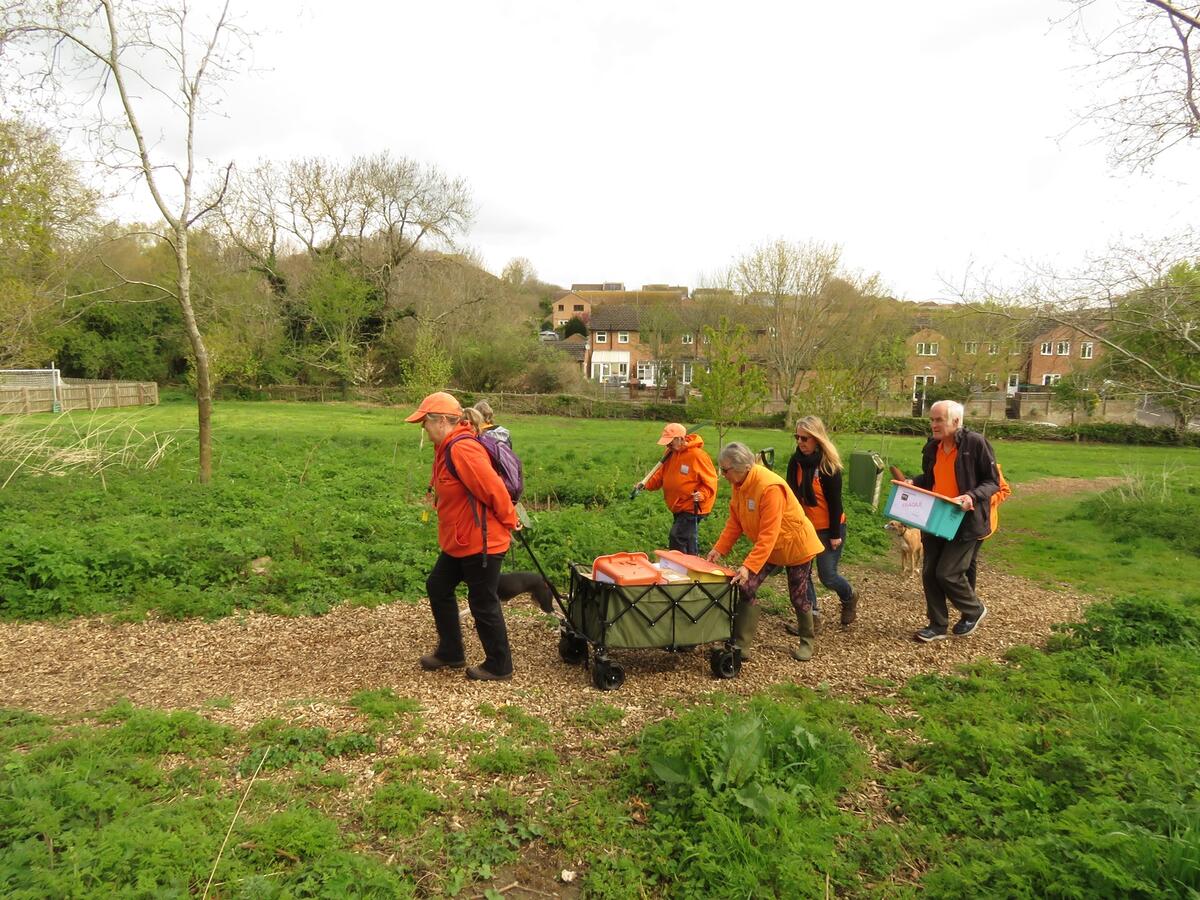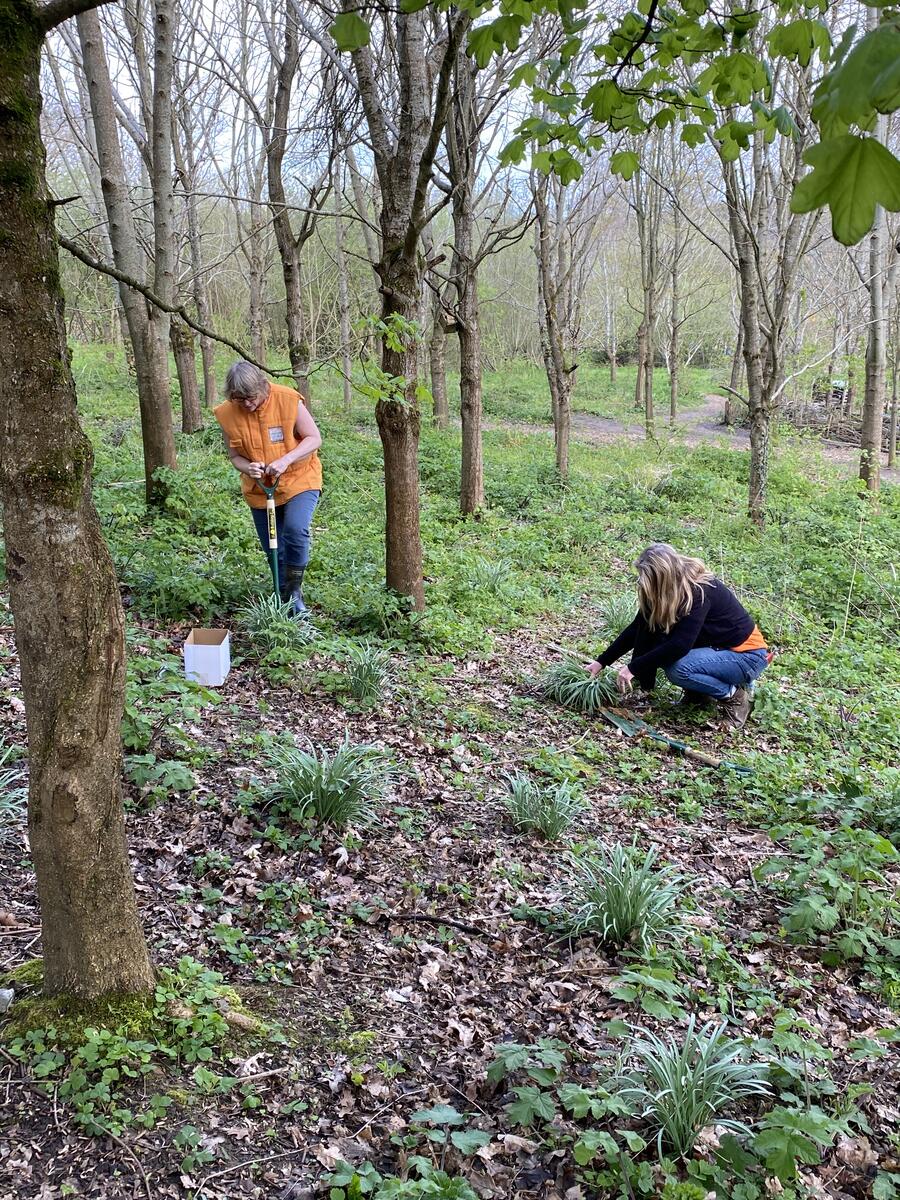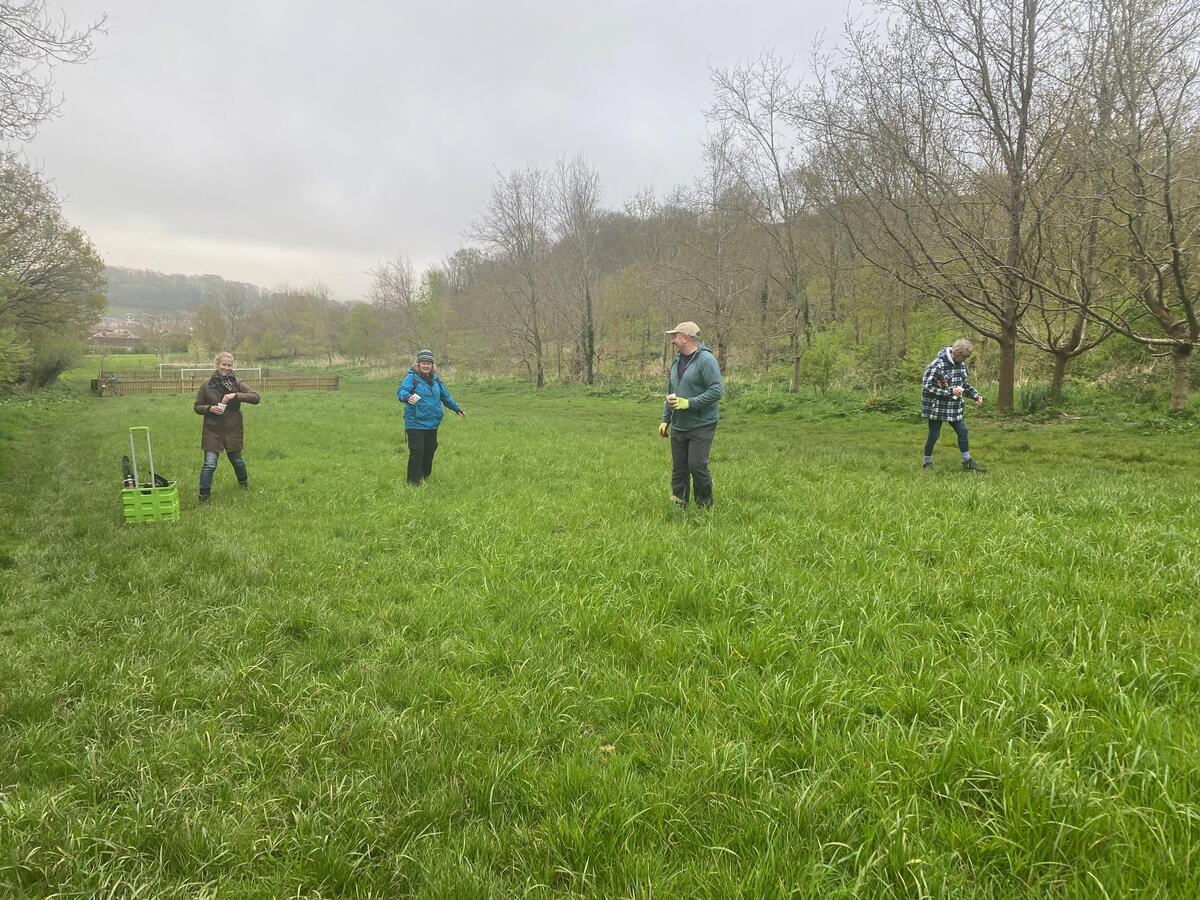Pollinators Paradise
Welcome to Pollinators Paradise. This page will promote and follow the Allington Hillbilly project which aims to improve the environment in Cooper's Wood and Field for the benefit of insect life (and that of birds etc who feed on insects) in late winter / early spring.
We took part in the Wild Isles crowdfunder and raised a staggering £3,510!
The project will run from summer 2023 to early 2024 and everyone is invited to help. Events will be advertised on this website and on the Allington Hillbillies Facebook group (https://www.facebook.com/groups/allingtonhillbillies)
Due to the awful weather conditions and very muddy underfoot during the winter of 2024, a few volunteers planted all the bulbs and plants. After risk assessments, sadly all the community events were cancelled.
UPDATE: The remaining funds of £387.00 will be used to launch “Pollinators Paradise II” We hope to attract funding up to approximately £2,500. If successful we will run more workshops, activities and events for the community to understand the benefits of insects to wildlife and the community.
If successful this is the outline plan for Pollinators Paradise II.
The free sessions will be aimed at all ages and abilities, including inviting people from the wider community. Our knowledgable volunteers will lead sessions which include, insect ID, bio blitz activities, wildflower surveys and seed collection.
The aim is to improve people’s knowledge of connectivity between insects, plants, wildlife and the community. Other events to include sessions run by entomologists and ecologists and observe wildlife such as bats and birds, which rely on insects for food, will take place. Moth events will also be held, as they are important night time pollinators.
Autumn and winter activities will include planting snowdrops, wild daffodils bulbs, and planting primroses, to help early pollinators and to learn how insects survive the winter.
Spring activities will include looking at different habitats which insects need to flourish, bio blitzactivities and growing wildflower plug plants. Equipment required includes insect ID sheets, insect nets, specimen pots, magnifying glasses, wildflower seeds, bulbs and planting equipment
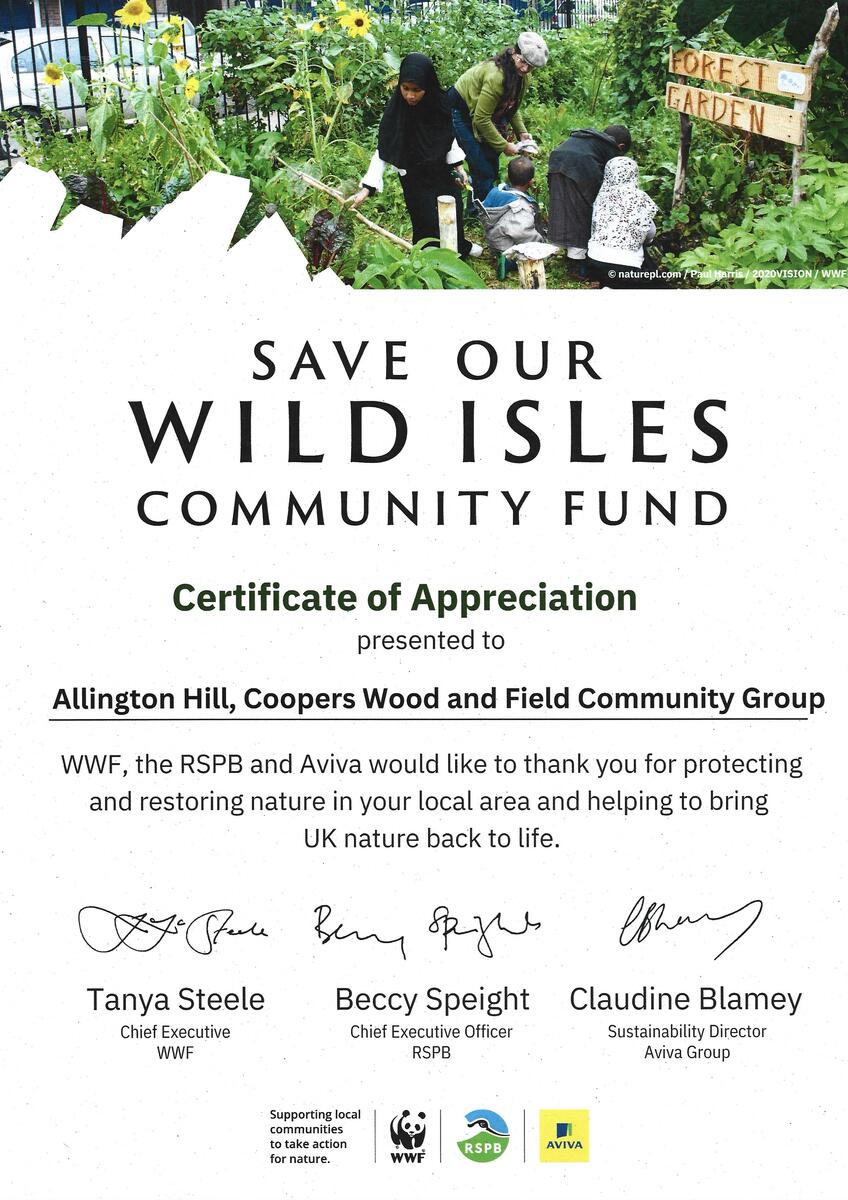
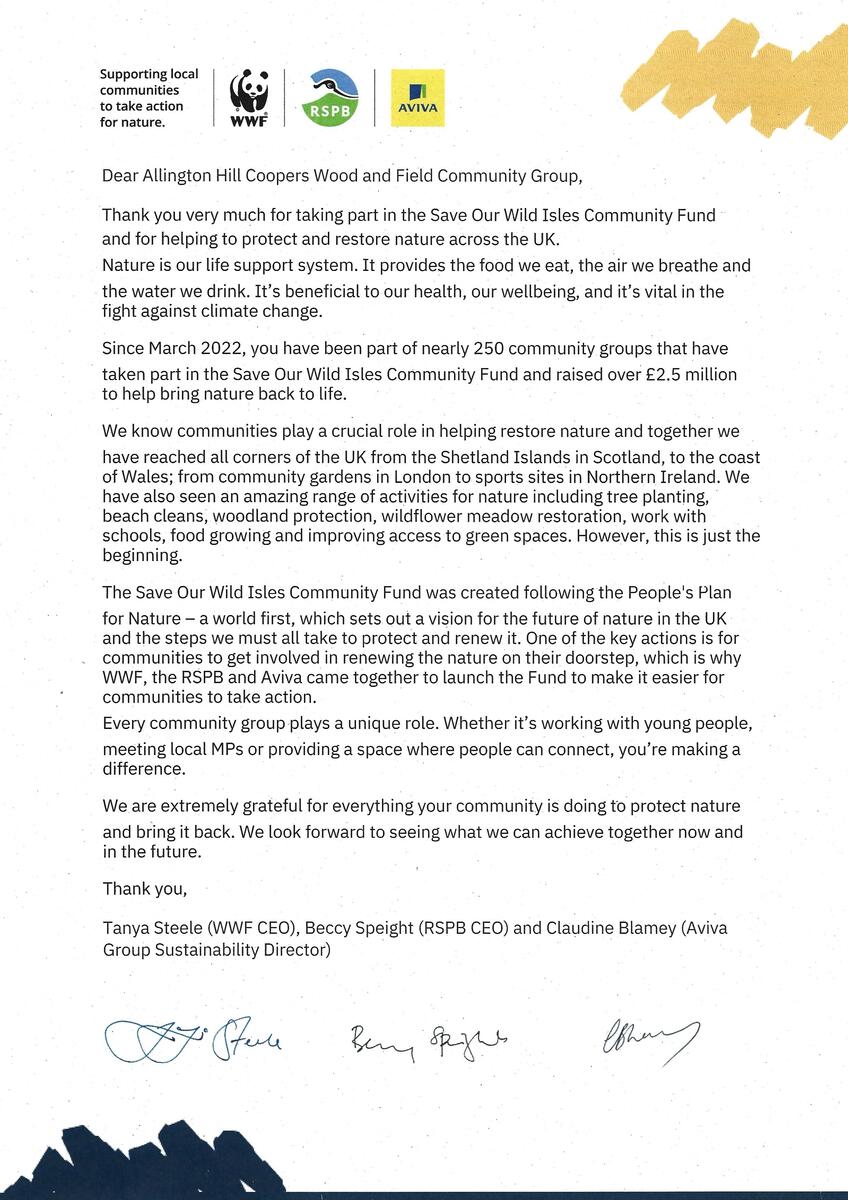
Pollinators Paradise Insect Surveys.
The surveys are run by volunteers which includes a volunteer who studies insects. These are not scientific surveys, as we do not have the equipment, or time to dedicate to this. We were also hampered in 2024 by continual overcast cool weather conditions during the summer months. Many insects are not on the wing in such conditions, making them more difficult to survey.
Our observations concluded, that the insect population in the area in general had increased. We identified three new species of insect within the area, including Wasp Spiders. These decline in Butterfly numbers were of great concern. The Marble White Butterfly colony was not evident in the two areas it had inhabited in the past. Small and Large Skipper numbers were down by 80%. Meadow Browns and Ringlets approximately 20%. This we believe was due to weather conditions being very overcast and damp.
2025. The first observations have seen an increase in all insects, including greater numbers of Spring Butterflies, identifying Green Veined White for the first time, day and night moths, including the first recording of a Puss Moth.
